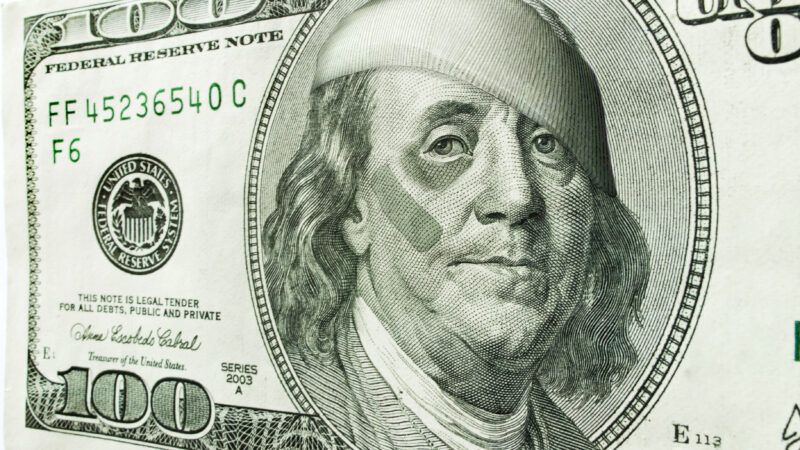Don't Bet on Inflation Going Away Soon
"The history of developed countries since 1970 is very discouraging about the prospects of bringing down 8 percent inflation," says Larry Summers.

More than a year after Americans were told that inflation would be "transitory," several prominent economists now warn that persistently rising prices could be here to stay for a while.
"The history of developed countries since 1970 is very discouraging about the prospects of bringing down 8 percent inflation," tweeted Larry Summers, the Barack Obama advisor who was one of several economists to correctly warn that the American Rescue Plan's spending surge would trigger inflation. If anything, Summers wrote, the current belief that interest rate hikes from the Federal Reserve will curtail rising prices while slowing the economy might be overly optimistic.
Summers outlined his argument in more detail in an op-ed published Monday by The Washington Post. While the Fed has raised interest rates several times in recent months, Summers says it is "simply not plausible" to think that rates have risen high enough to bring inflation back down to the central bank's target rate of 2 percent.
The argument against more aggressive action is that sharply rising interest rates could trigger a bad recession, but Summers thinks that worry misses the point. Unless inflation is controlled—even at the expense of a bad recession, as was required in the early 1980s to stop the inflationary spiral of the late 1970s—"workers will not see meaningful increases in their purchasing power."
As usual, the root cause of the inflation crisis is an overly loose monetary policy. When there are more dollars chasing the same number of goods, prices will rise.
And there is a lot of excess money in the system right now, as the Harvard economist (and another former Obama advisor) Jason Furman pointed out on Twitter last week. Furman noted that pandemic-era stimulus efforts resulted in bulging household savings rates and that much of those savings have yet to be spent.
Households saved about $2.2T during the initial pandemic and pandemic stimulus. Have spent out $0.7T of that maintaining consumption in the face of flat/declining real incomes. Still leaves about $1.5T--which could easily last a year. pic.twitter.com/zbBarTrgd5
— Jason Furman (@jasonfurman) October 28, 2022
Furman believes the economy is headed for a period of "stagflation," which he describes as an "ongoing hard landing" in which unemployment rises and inflation falls, but not to the Fed's desired levels.
Inflation ramped up during the spring and summer of 2021, as America exited the worst of the COVID-19 pandemic. At the time, officials at the Federal Reserve and within the Biden administration claimed the rising prices were a "transitory" phenomenon caused by the pandemic and various supply chain problems. That was "probably the worst inflation call in the history of the Federal Reserve," according to Mohamed El-Erian, chief economic advisor for Allianz, a German-based firm that is one of the world's largest insurance companies.
Months later, as prices continued to rise, the Biden administration switched gears to blame Russian President Vladimir Putin's invasion of Ukraine. While it's true that the war in Ukraine has helped nudge fuel and food prices higher, the true driver of inflation is monetary policy rather than short-term shocks to supply chains. If the money supply had been kept in check, consumers would have offset higher gas prices, for example, by cutting back on purchases elsewhere and inflation would have been contained.
It wasn't. And whether it can be contained now remains an open question.
A Deutsche Bank report published last week looked at periods where developed economies saw inflation above 8 percent—as is happening now in the United States and Europe. Historically, it takes around two years for inflation to fall below 6 percent "before settling at about that level for five years after the initial spike," the Financial Post notes.
Citing a report from Oxford Economics, a forecasting firm, the Financial Post warns that "painfully tight monetary policy might be required for central banks to bring inflation all the way back to target. Public support for such a policy appears limited."
That brings us back around to the dilemma highlighted by Summers. The sure way to bring inflation down quickly is to experience a bad recession, which of course comes with its own plentiful downsides.
"The idea that the economy has overheated, and thus monetary policy needs to be restrictive, is at last widely accepted even by acolytes of 'team transitory,'" Summers wrote Monday in the Post, casting some shade at those who misled Americans about inflation a year ago.
Don't expect things to look a lot better a year from now.
